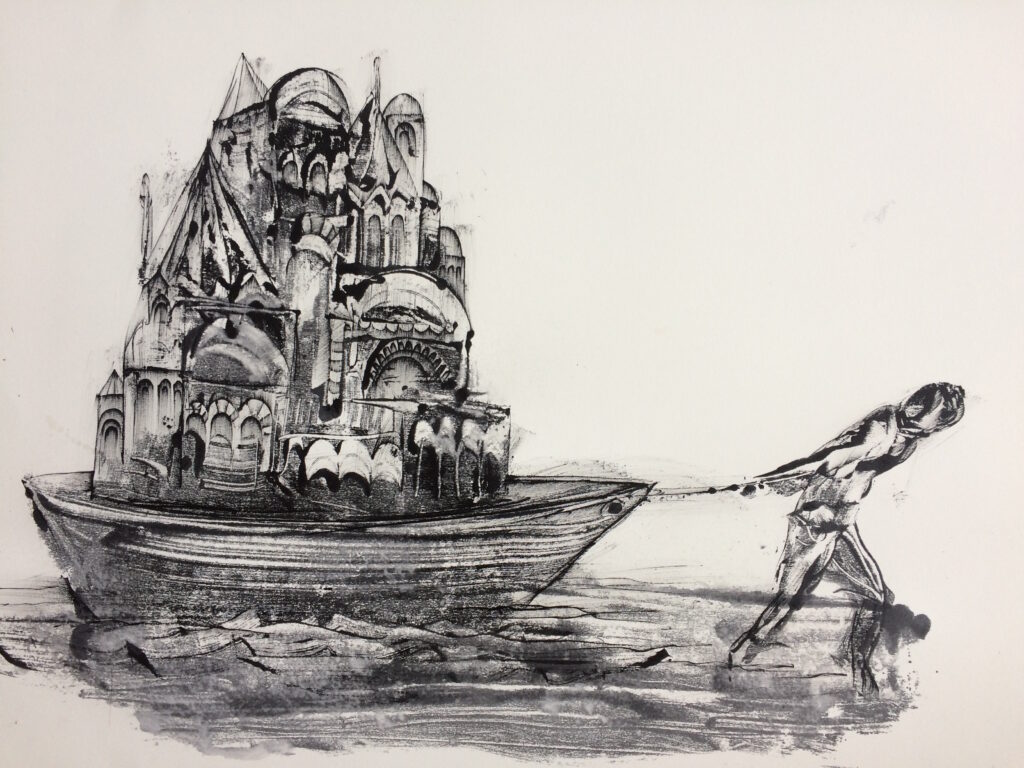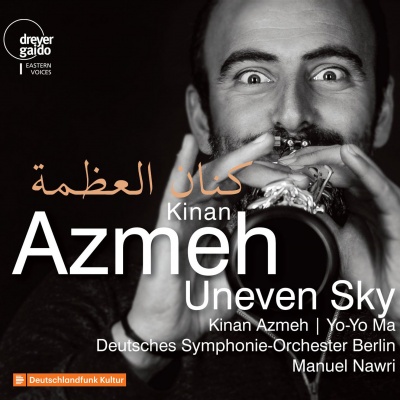Duration ca. 29′
For clarinet & orchestra
Instrumentation • Solo Instruments: Clarinet • Orch: 2(picc.)2.eh.2.bcl.2.cbsn-4.3.3.1-timp.2perc-hp-str
E.C. Schirmer Rental Request Form.

Composed for clarinetist Kinan Azmeh and Deutsches Symphony Orchestra.
The recording of this concerto has been released on Kinan Azmeh’s new double CD Uneven Sky.

Program Notes:
This work is inspired by two books that were written almost 2,700 years apart but tell a similar tale; Homer’s The Odyssey and A Hope More Powerful Than The Sea by Melissa Fleming, who is the Chief of Communications at the UNHCR. The respective protagonists in each book, Odysseus and Syrian refugee Doaa Al-Zamel, both embark on a perilous sea journey in an attempt to reach home, or a place of refuge. In both cases the consequences of the journey across the Mediterranean are brutal and deadly. In both instances their ships are sunk and Odysseus and Ms. Al-Zamel are stranded at sea for several horrific days awaiting rescue. The story of their survival is almost unbelievable.
Reading Homer’s epic poem, one can imagine Odysseus, the cunning hero of the Trojan war, surviving for days at sea without food or water while clinging onto bits of wreckage from his ship. But the story of Ms. Al-Zamel’s experience, a petite ninety pound woman who could not swim but survived at sea for four days with nothing but a children’s swimming pool inner tube while holding on to two infants and keeping them alive, is almost beyond belief. Perhaps we need mythology to help us to understand and process exceptionally difficult life circumstances such as those experienced by Ms. Al-Zamel and by thousands of refugees who have made similar journeys.
This concerto is a meditation on these two stories. The clarinet plays the role of Odysseus/refugee and the orchestra the role of the sea and all the hurdles that stand in the way of home/refuge. The work begins with Odysseus/refugee confronting the sea from the shore of departure. There is a struggle to simply get on a vessel and make it out to sea. This is followed by the sea journey itself, which is unstable and tense. Eventually the sea rages and the ship sinks. Odysseus/refugee are adrift on the sea, which has become an even darker and more dangerous place. All time is suspended & survival is a matter of a few centimeters of water above or below one’s head.
While the general trajectory of the work up to this point is downward, that of the finale is upwards. After much struggle there is an arrival to the ‘other shore’ where a sense of calm eventually pervades. However, this ‘other shore’ is not clearly defined. It could be a peaceful place of refuge or it could be an afterlife. It is up to the imagination of the listener to decide the fate of Odysseus/refugee. If I am attempting to make an extramusical point with this work it this; just as it requires the listener to exercise his/her imagination to decide the fate of Odysseus/refugee in this work, it also requires imagination to craft just and humane policies that address the plight of refugees that the world faces today. After all, it is the power of imagination that can inspire hope or lead to despair.
Kareem Roustom • July 2017
© Layali Music Publishing, BMI
